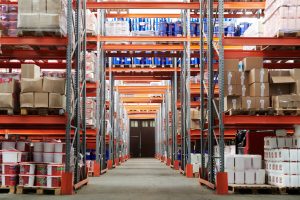What does factory machinery maintenance involve?
Employers have an obligation to provide equipment that is safe to use. This includes hand tools, power tools, ladders, factory machinery, and more. The regular maintenance of factory machines is also important from a business point of view, as it keeps operations running smoothly.
In this blog, we’ll be breaking down what proper factory machinery maintenance involves and why it’s important for production and manufacturing businesses.
The importance of maintaining factory machinery
Factory machinery maintenance is important to prevent costly breakdowns. Many factory machines are designed for technical applications, which means their parts are often expensive to reproduce. On top of this, resolving machinery issues involves a large time investment. This detracts from working hours that the factory should be using to putting towards its function, whatever that is.
Most modern factories utilise machines to improve key factory processes. When these machines stop functioning, it can disrupt a business’s manufacturing operations and overall output capabilities. The consistent running of factory machines is integral to production companies hitting quotas and staying on schedule.

What’s involved in factory machinery maintenance?
Machine maintenance requires upkeep checks are performed to test that machinery is working properly. The process should reveal any parts that are defective or damaged, identify losses in efficiency and the cause, and implement measures to prevent future breakdowns. Factories should monitor machines regularly to look for changes in normal operating readings. This can include measurements like energy consumption, temperature, or any metric that can indicate a loss of efficiency.
Of course, there is a huge range of machines that can be present in factories. As such, factory maintenance managers will have slightly different knowledge and skillsets depending on the industry. For instance, while both use machines, the aviation industry produces products that are very different to those in food production engineering.
There are also different types of machine maintenance, which vary depending on the strategies employed. These are:
- Usage-based maintenance
- Reactive maintenance
- Preventative maintenance
- Condition-based maintenance
- Prescriptive maintenance
- Predictive maintenance
Interested in factory machine maintenance techniques? Read our other blog ‘How thermal imaging helps preventative maintenance’.
Cleaning
Dust and debris can disrupt sensitive machine components. This has the potential to cause inefficient running or rises in temperature, leading to lasting damage. Regular cleaning practices, especially of hard-working parts, helps prevent these eventualities.
Inspection
Sometimes factory machines can wear down naturally over time due to environmental conditions. You can check when this is happening by running diagnostics on machines or inspecting them physically. This can reveal faults that are developing.
Applying lubricants
Friction is a major factor that leads to the build-up of heat in factory machines. Tested lubricants extend the lifespan of machinery by allowing components to move freely. Lubricants can also be tested to help determine which part of the machine is experiencing problems. This in turn allows for more targeted repairs, which are often quicker and more cost-effective.
Component storage
Machinery should be kept in areas with controlled levels of heat and humidity. This can help machines maintain functionality by preventing the build-up of rust, rot, and other corrosion.
Keep a maintenance schedule
The key to effective factory machine maintenance is consistency. Factories tend to keep their machines running for long periods at a time, so issues can arise and progress quickly. Having a schedule for inspections and cleaning helps prevent problems fully manifesting.
For maintenance scheduling, there are two main strategies that are widely used by factories – Planned Preventative Maintenance (PPM) and Total Productive Maintenance (TPM). The former schedules maintenance tasks ahead to time, usually while assets are demonstrating proper functionality. On the other hand, TPM seeks to improve processes by introducing measures that reduce the risk of accidents or mistakes. This can include training, management, machine upgrades, and more.
Experienced factory design consultants
FESS offers specialist maintenance, repair, and installation services for factory machinery. We know how disruptive machine breakdowns can be for production lines, which is why we aim to restore your operational efficiency as quickly as possible. It can be time and resourcing consuming to constantly perform maintenance checks across multiple machines. With us, you’ll have a flexible maintenance solution that’s tailored to your factory.
Contact us today.